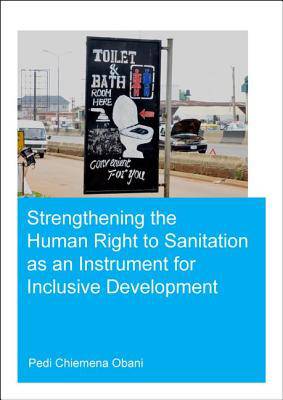
- Retrait gratuit dans votre magasin Club
- 7.000.000 titres dans notre catalogue
- Payer en toute sécurité
- Toujours un magasin près de chez vous
- Retrait gratuit dans votre magasin Club
- 7.000.000 titres dans notre catalogue
- Payer en toute sécurité
- Toujours un magasin près de chez vous
Strengthening the Human Right to Sanitation as an Instrument for Inclusive Development
Pedi ObaniDescription
Over a third of the current 7.3 billion people worldwide are burdened with poor sanitation services. The resulting social, relational and ecological exclusion make the realisation of the human right to sanitation (HRS) a critical concern development concern. However, the literature has evolved in a largely compartmentalised manner, focusing on the formal recognition of the HRS in domestic legal systems, without sufficiently addressing the drivers of poor sanitation services.
This research expounds on the impact of the HRS on human wellbeing and the environment within the context of a developing country like Nigeria as a case study. The findings show that contrary to the focus in the literature, the drivers of poor sanitation services are not confined to legal factors, such as the formal recognition of the HRS within domestic legal systems. Rather, the drivers include social, economic and environmental limitations to improved sanitation services.
Based on the findings, the book argues that the focus in the literature on the formal recognition of the HRS in national legal systems is insufficient for tackling the main drivers of poor sanitation services. It is therefore necessary to reformulate the HRS discourse using complementary governance instruments that advance social, relational and ecological inclusion.
Spécifications
Parties prenantes
- Auteur(s) :
- Editeur:
Contenu
- Nombre de pages :
- 386
- Langue:
- Anglais
- Collection :
Caractéristiques
- EAN:
- 9781138618480
- Date de parution :
- 26-06-18
- Format:
- Livre broché
- Format numérique:
- Trade paperback (VS)
- Dimensions :
- 168 mm x 239 mm
- Poids :
- 476 g







